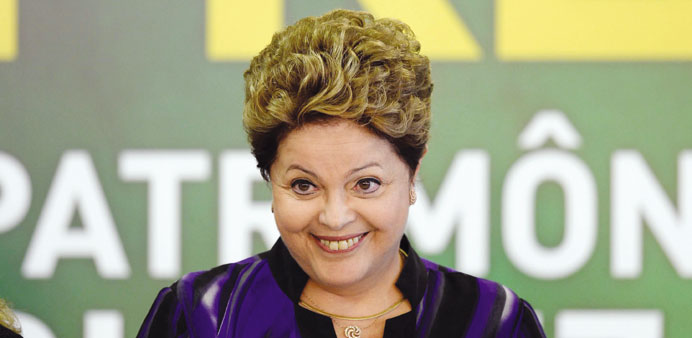High inflation should not keep Brazilian President Dilma Rousseff from getting re-elected in October because wage earners have been cushioned by social gains made during a decade of Workers’ Party rule, the party’s boss said.
“It’s better to live with somewhat higher inflation that will come down in time than to have to sacrifice your job,” Workers’ Party President Rui Falcao told Reuters in an interview. “There is inflation, but you have your home, your children go to university, and there is work.”
Shock treatment to bring down inflation to 3% next year, as rival candidate, Eduardo Campos, has proposed, would throw many out of work, Falcao said.
Brazil’s annual inflation rate hit 6.5%, the upper limit of the government’s target range, for the first time in a year in June after airlines and hotels raised fares for the soccer World Cup, which the nation hosted.
Inflation has remained stubbornly high throughout Rousseff’s administration.
Opinion polls show the cost of living is a top concern among Brazilians, and analysts say high prices in a slow economy could hurt her chances of winning a second term in the toughest race since the leftist Workers’ Party won the presidency in 2002.
Her main challenger, pro-business candidate Aecio Neves, vows to curb inflation by ending the fiscal largesse of Workers’ Party administrations and restore growth to Latin America’s largest economy by reducing state intervention and encouraging private investment.
Rousseff’s allies are worried inflation could jeopardise her re-election.
Vice President Michel Temer, her running mate from the PMDB party, told Reuters last week that the government could not allow inflation to pierce the target ceiling. But Falcao brushed aside that concern. Brazil can live with “a little bit higher inflation” temporarily, he said, espousing a view that is decried by many economists in a country with a long history of runaway prices.
The Workers’ Party will campaign on the social benefits it has delivered, lifting more than 30mn Brazilians from poverty and into consumer society, providing low-cost housing and grants for education, and reducing income inequality while keeping unemployment at historic lows.
Falcao said the more orthodox economic policies of Neves’ PSDB party could depress real wages.
Rousseff’s campaign has not appointed an economic adviser, while Neves’ team has former central bank governor Arminio Fraga as top adviser along with other economists.

